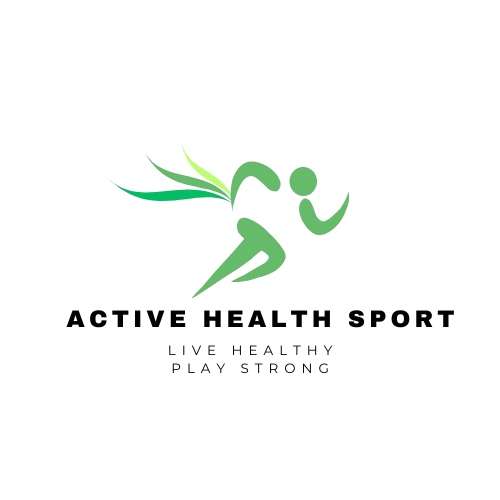The Science of Deep Sleep
Why Deep Sleep Matters More Than Ever
Sleep isn’t just about closing your eyes and drifting away, it’s the most powerful recovery tool your body has. For athletes, fitness enthusiasts, or even people maintaining an active lifestyle, deep sleep is where the magic happens. It’s during this phase that your muscles rebuild, your brain consolidates memory, and your hormones reset.
Yet, in 2025, despite access to sleep trackers and smart devices, over 62% of active adults report not getting enough deep sleep. Understanding how to optimize it could be the difference between feeling sluggish or performing at your peak.
What Exactly Is Deep Sleep?
Deep sleep, often called slow-wave sleep (SWS), is the most restorative phase of the sleep cycle. It is defined by the presence of delta brain waves, which are the slowest and highest-amplitude brain waves recorded during sleep. Unlike lighter sleep stages, where your body is more responsive to noise and movement, deep sleep acts like a shield, your body and mind enter a state of profound restoration.
During this stage, the body engages in critical recovery processes:
- Brain activity slows dramatically as neural oscillations enter delta wave frequency. This slowdown allows the brain to “declutter,” process the day’s experiences, and prepare for learning and decision-making the next day.
- Growth hormone release peaks, stimulating muscle repair, bone growth, and tissue regeneration. This is why athletes and physically active people especially rely on quality deep sleep.
- Immune system function is strengthened. Deep sleep supports the production of cytokines, proteins that help fight infection, inflammation, and stress.
- Energy reserves (glycogen) are replenished within the brain, ensuring you wake up with the fuel needed for focus, memory, and physical performance.
- Metabolic regulation stabilizes. Studies show deep sleep plays a direct role in regulating insulin sensitivity, appetite hormones (ghrelin and leptin), and fat metabolism.
On average, 20–25% of a healthy adult’s sleep cycle should be spent in deep sleep. That equals about 90 minutes to 2 hours each night. Athletes, children, and individuals recovering from illness or injury may require longer durations of slow-wave sleep for optimal healing.
How Deep Sleep Differs from Other Stages
Deep sleep is unique compared to other phases of rest:
- Unlike light sleep, deep sleep makes it difficult to wake up, this is why being pulled out of deep sleep often causes grogginess known as “sleep inertia.”
- Unlike REM sleep, which is more about dreaming and emotional processing, deep sleep is the body’s repair workshop.
When Does Deep Sleep Occur?
Deep sleep usually dominates the first half of the night. The cycles are longer and more consistent early on, and then they taper as REM sleep becomes more prominent in the later hours. Missing early-night sleep due to late nights can rob you of most of your deep sleep cycles, leading to noticeable fatigue the next day.
Also Read the Latest: How Short Naps Can Charm Your Mood and Reduce Stress?
Sleep Cycle Stages Explained
To appreciate deep sleep, you first need to see where it fits in the bigger picture.
| Stage | Description | Average Duration per Cycle | Role in Recovery |
| Stage 1 (NREM) | Light sleep, drifting off | 5–10 min | Transition phase |
| Stage 2 (NREM) | Body temp drops, heart rate slows | 20–25 min | Prepares for deep sleep |
| Stage 3 (Deep Sleep / SWS) | Delta brain waves dominate | 40–60 min (first cycles) | Tissue repair, growth hormone release |
| REM Sleep | Dreaming stage, brain active | 10–60 min | Memory, emotional processing |
Why Athletes Struggle With Deep Sleep
Even though athletes train for physical resilience, deep sleep often becomes their weak link.
Common reasons include:
- Late-night training → Elevated cortisol keeps the body alert
- High protein intake before bed → Digestion delays deep sleep onset
- Blue light exposure → Screens delay melatonin release
- Travel and jet lag → Disrupt circadian rhythm
Also Read the Latest: Why Blue Light Disrupts Sleep and How to Avoid It?
Science-Backed Strategies to Enhance Deep Sleep
Timing Your Workouts
Training too late in the evening spikes cortisol and adrenaline. A 2024 study in the Journal of Sports Physiology found that workouts ending at least 3 hours before sleep improved deep sleep duration by 18%.
Cooling Your Body
Deep sleep requires a core temperature drop of about 1–2°C. Techniques include:
- Cold shower before bed
- Cooling mattress pads
- Room temperature between 18–20°C
Nutrition for Sleep Optimization
Certain foods naturally increase melatonin and serotonin.
| Food | Sleep Benefit |
| Kiwi | Boosts serotonin production |
| Almonds | Rich in magnesium for relaxation |
| Tart cherries | Natural melatonin source |
| Chamomile tea | Contains apigenin, a calming compound |
Breathing & Mindfulness
Practices like 4-7-8 breathing and yoga nidra activate the parasympathetic nervous system, lowering heart rate and promoting deep sleep entry.
Digital Detox
Exposure to blue light delays melatonin by up to 90 minutes. Using blue-light blocking glasses or setting devices to “night mode” after 8 p.m. significantly improves deep sleep onset.
Deep Sleep vs. REM Sleep: Which Matters More?
Both stages are crucial, but they serve different recovery purposes:
| Aspect | Deep Sleep (SWS) | REM Sleep |
| Primary Role | Muscle repair, hormone release | Memory, creativity, emotional balance |
| Brain Activity | Slow delta waves | Fast, active |
| Impact on Athletes | Strength, stamina, injury recovery | Strategy, focus, decision-making |
How Technology Can Help Monitor Deep Sleep
In 2025, sleep technology has evolved beyond simple trackers. Tools like:
- EEG headbands → Measure brain wave activity
- Wearable rings → Track HRV (Heart Rate Variability) and oxygen levels
- Smart beds → Adjust firmness and temperature dynamically
But experts caution: data should guide habits, not create stress about sleep numbers.
Long-Term Effects of Poor Deep Sleep
Missing deep sleep repeatedly can lead to:
- Reduced muscle recovery and performance
- Increased risk of injury
- Higher cortisol levels (leading to fat storage)
- Memory and focus decline
- Weakened immune system
Creating a Deep Sleep Ritual: Step-by-Step Plan
- Wind down early – Finish workouts and meals 3 hours before bed
- Set the environment – Cool, dark, quiet room
- Light exposure management – Morning sunlight + reduced blue light at night
- Mind relaxation – Journaling, meditation, or light reading
- Consistent sleep schedule – Same bedtime and wake time, even on weekends
FAQs on Deep Sleep
How many hours of deep sleep should I aim for?
Most adults should aim for 1.5–2 hours of deep sleep each night, depending on lifestyle. Athletes or highly active individuals may benefit from closer to 2.5 hours for muscle recovery and memory support.
Does alcohol improve or harm deep sleep?
It harms deep sleep. Alcohol may help you fall asleep faster, but it disrupts the quality of deep sleep. Studies show it can reduce restorative deep sleep by up to 30%, affecting recovery, brain function, and energy levels the next day.
Can naps replace deep sleep at night?
Naps are useful for boosting alertness and providing light or REM sleep, but they rarely offer true deep sleep. While short naps refresh you, they cannot fully replace nighttime slow-wave deep sleep cycles.
Is deep sleep more important than total sleep time?
Both total sleep and deep sleep are essential. Without enough total hours, the body shortens deep sleep phases. Prioritizing 7–9 hours overall ensures enough time for restorative deep sleep and healthy sleep cycles.
Do supplements like magnesium or melatonin really work?
Magnesium may support deeper sleep by relaxing muscles and calming the nervous system. Melatonin can help regulate sleep schedules, especially for jet lag, but it’s not a permanent fix. Lasting results come from consistent lifestyle habits.
You might also like the following…
- Why Mobility Matters More Than Muscle for CrossFit ProgressIn CrossFit culture, strength numbers often steal the spotlight: heavier deadlifts, faster WOD times, and bigger PRs. While muscle and power are essential, they are not the limiting factor for long-term CrossFit progress.… Read more: Why Mobility Matters More Than Muscle for CrossFit Progress
- Zone-2 Walking for CrossFit Athletes ExplainedIn CrossFit, conditioning is often associated with intense, fast-paced WODs, high heart rates, and breathless finishes. While this intensity builds power and short-term fitness, it does not fully support aerobic efficiency, recovery capacity,… Read more: Zone-2 Walking for CrossFit Athletes Explained
- How Low-Intensity Walking Restores the Nervous SystemCrossFit is designed to test physical limits. Heavy lifts, fast-paced metabolic conditioning, and complex gymnastic movements demand not only muscular strength but also significant nervous system output. While most athletes focus on muscle… Read more: How Low-Intensity Walking Restores the Nervous System

Kait Amazra is the founder and lead writer of Active Health Sport. With over 25 years of experience in health, fitness, and wellness education, Kait combines professional expertise with a passion for helping people live stronger, healthier, and more balanced lives.
As a licensed health and fitness professional, Kait has worked alongside industry experts to deliver evidence-based insights on physical activity, nutrition, recovery, and holistic well-being. Through Active Health Sport, Kait’s mission is to make trusted, practical, and science-backed health information accessible to everyone, from beginners building new habits to athletes seeking peak performance.

